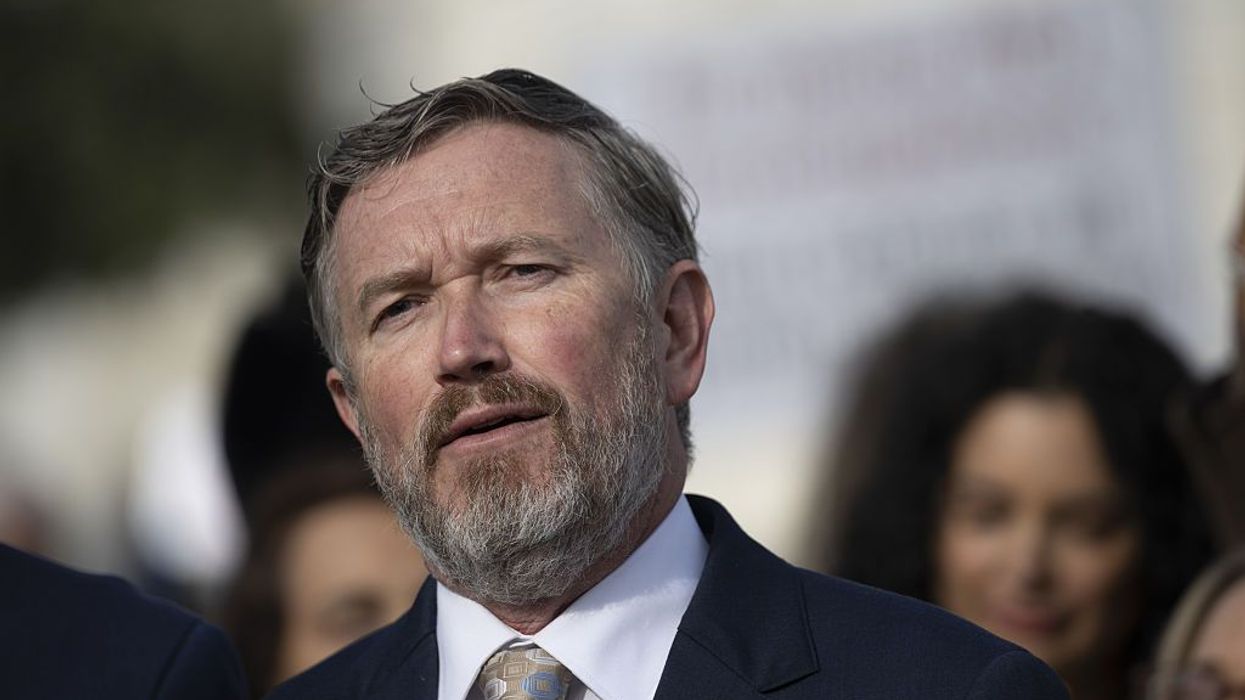To mark the start of two important days of debt negotiations, the international campaigning group Avaaz has invited a special guest to perform in front of IMF headquarters at the spring meetings: Evita Peron.
Singing in English, an activist dressed as Evita performed a debt-restructured version of the hit "Don't Cry for me Argentina," which includes the refrain: Don't feed the greed, Argentina / The truth is you give them Nature / All through your wildlife / Your green resilience /Just keep your glaciers / And save the planet!
Evita's composition is intended to draw attention to the fact that while Argentina holds a significant IMF debt, it also shares crucial climate and biodiversity wealth, free of charge. A similar imbalance (of monetary poverty despite biodiversity wealth) exists in the majority of highly-indebted poor countries (HIPC) whose IMF debts are set to be renegotiated to allow for additional urgent needs resulting from the COVID-19 pandemic.
The lyrics highlight the fact that Argentina has one of the biggest environmental surpluses in the world, in contrast to its financial creditors, the majority of whom have a green deficit.
Avaaz is calling upon Argentina to start an international debt rebellion which would take into account contributions of climate and biodiversity wealth in overall debt calculations. This would allow poor countries to stop paying money to rich countries and invest instead in the well-being if their people and the protection of their natural wealth, with a benefit for all of us. Avaaz also calls upon the IMF's Managing Director, Kristalina Georgieva to stand her ground in negotiations towards a radical debt reform.
Oscar Soria, Campaign Director at Avaaz, said in a press conference at the front of IMF HQ:
"To mark the start of these crucial spring meetings, Avaaz brought an Argentine icon to call for social inclusion and ecological justice in the current debt negotiations. The ecological debt should be considered in any further negotiations between rich and poor nations."
"Given the emerging global recognition of the need to include nature in economic models it is time that debt calculations take into account the biodiversity and climate protections provided by many developing countries, usually for little or no financial reward. By rethinking who is indebted to whom we will establish a new green economy that protects our planet while tackling debt through a sustainable and equitable lens
The perpetual renegotiation of sovereign debt between rich and poor countries is a cruel feature of a colonial mindset that believes it is fine for the wealthy to profit from the natural riches and resources of the poor, with little concern for helping them out of poverty. As a result, too many governments, especially in the Global South, find themselves stuck in spirals of indebtedness that prohibit them from investing in the health and well-being of their citizens. We fear this will only be exacerbated by the social and economic blows of the Covid-19 pandemic."
What Avaaz would like to see happen at the IMF/WB Spring Meetings:
Special Drawing Rights (SDRs): The world's wealthiest countries (primarily G7 and G20) should be called upon to:
* Reallocate a significant proportion of
their SDRs to support rapid access to liquidity for vulnerable countries. A collective target of 90% of SDR allocation to G20 countries should be reallocated to vulnerable countries.
* Put these new SDRs to good use: whether the new SDRs remain at the IMF or are poured into a new "SDRs Trust Fund" to make grants and concessional lending, the actual use of the money should be aligned with recipient countries' development priorities, and always be fully aligned with fulfilling the SDGs and the Paris Climate Agreement objectives.
Modernizing the Role of the IMF: The IMF should seize the opportunity of the ongoing Comprehensive Surveillance Review (CSR) (which will reform the IMF's surveillance for the next decade) to implement steps that ensure it is up to the challenge of supporting a more resilient and sustainable global economy. These steps could include:
* Strengthen the IMF's surveillance mechanisms and funding to recognize and avoid increasing risks posed by climate change and biodiversity loss. Despite the emerging threats they pose to macro-stability, the IMF has yet to include such risks into Article IV surveillance. Several publications (including from Carbon Tracker, IRENA, Mark Carney) show increasing "transition risks" due to the rapid transition to a net zero economy, including the growing risks of stranded assets estimated between $3-7 trillion by IRENA.
* The Fund's debt policies should be tailored to the challenge of addressing climate change. The joint World Bank-IMF Debt Sustainability Analysis Framework (DSA) should include climate related risks (including transition risks) and better assess the fiscal multipliers associated with green investments. With a longer term time horizon, the DSA must recognize the benefits of green (and blue) over grey investments, as recommended by the Joint V20-IMF Action Agenda, and the increasing risks of investing in unsustainable fossil-based infrastructures. Key points to support from the V20-IMF Joint Action Agenda are:
1. Mainstreaming systematic and transparent assessments of climate-related financial risks in all IMF operations.
2. Consistent, systematic, and universal appraisal and treatment of physical climate risks and transition risks for all countries in Article IV consultations and Financial Sector Assessment Programs.
3. Advancing disclosure of climate-related financial risks and promoting sustainable finance and investment practices.
4. Exploring synergies between fiscal and monetary policies.
5. Mainstreaming of climate risk analysis in public financial management and supporting the development of a climate disaster risk financing and insurance architecture.
6. Supporting climate vulnerable countries with debt sustainability problems.
7. Developing the IMF toolkit for climate emergency financing.
8. Exploring options to use Special Drawing Rights (SDRs) to support climate vulnerable countries.
9. Supporting the design and implementation of carbon pricing mechanisms.
10. Institutionalizing collaboration between the Fund and the V20.



